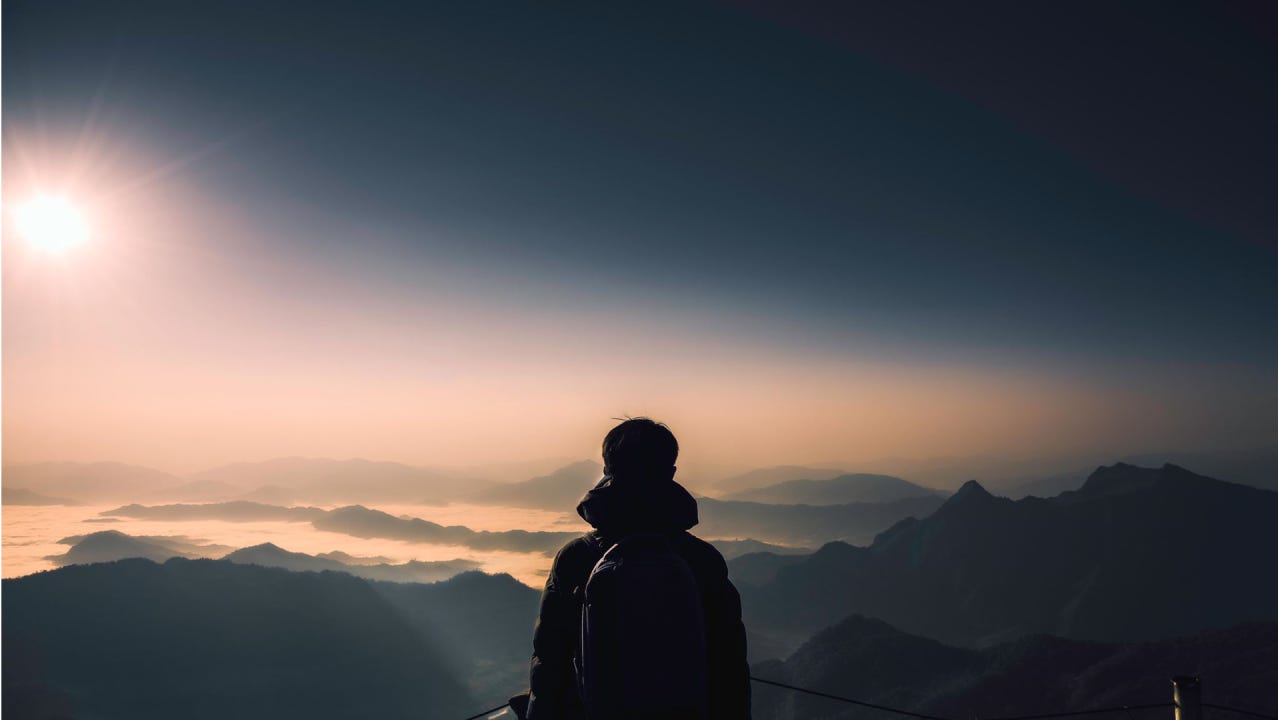Stop Trying to Think Harder
Why your best ideas appear when you stop forcing them
Dear Reader
Like most people, I did not know how to get the most out of my mind. Only recently have I started learning how to do it. The question is, how does that happen? If we want our best work, we have to be disciplined in how we create the environment that unlocks our potential. Yet most approaches to work do the opposite. They set up rigid environments in an attempt to force productivity, creativity, and innovation. We tell people to stay at their desks and expect great ideas to appear on demand. Why not design work in ways that place us in our best cognitive space? Walking meetings, for example, often spark richer thinking than an hour in a boardroom.
One morning not long ago, I had been wrestling with a challenge for several days without making progress. Instead of sitting down to push through it, I headed out for my usual walk along the shoreline. About halfway along the path, the answer appeared so clearly that I was almost startled by it. The solution had been there all along, waiting for me to step into the right mental space. That walk reminded me that effort alone does not always open the door to insight. Sometimes you have to change the environment entirely.
I had to learn to shift my priorities so that I get out for exercise every morning. That time has become non-negotiable because it is when my best ideas emerge. It is when I see patterns and connections that would stay hidden if I went straight to my desk. It is also when I set the tone for the rest of my day. The physical movement clears my mind, sharpens my thinking, and leaves me in the best mental state to tackle whatever comes next. By protecting that space, I am not just getting a workout. I am giving my brain the environment it needs to do its best work.
What Have I Been Learning?
Writing a book has shown me that success is rarely about sudden bursts of inspiration. It is about creating the right conditions and then showing up for the work again and again. I learned that I could not leave my writing time to chance. I had to guard the hours when my mind was most alert and shape the space so it encouraged deep concentration. I broke the project into small, manageable pieces and worked through them one by one. Some days the progress was measured in a few sentences, other days in whole sections, but the key was to keep going without letting the momentum break. I cleared away everything else during those hours so my attention stayed entirely on the page. Over time the pieces began to fit together, and the result spoke for itself. The manuscript is now ready for the publisher three months ahead of schedule.
Where Have My Travels Taken Me?
I have been enjoying time in one place for the past few months at our lake property. It is rural, quiet, and peaceful, which makes it the perfect place to relax and reset. The absence of noise and urgency creates a mental openness I rarely find in busier settings. I notice that when I am here, ideas surface with less effort. Thoughts connect in ways they do not when I am surrounded by constant activity. It is a daily reminder that the right environment is not a luxury. It is a catalyst for the kind of deep, creative thinking that solves problems and sparks new possibilities. The stillness of the lake has become one of my most powerful tools for unlocking the work that matters most.
What Am I Reading?
I recently read A Whole New Mind by Daniel Pink. It sharpened my awareness of how the world has traditionally rewarded logical, left-brain approaches such as the engineer, the doctor, and the accountant. Pink’s argument is that the future belongs to those who can unlock creativity, innovation, and problem-solving abilities, and I can see that shift happening all around us. Reading the book confirmed what I have been learning in my own work. These higher-level abilities do not flourish in rigid, traditional structures. They need space to wander, time to connect ideas, and an environment that invites curiosity. It was a reminder that the conditions we create for ourselves are not just a matter of personal preference. They are the key to bringing our most valuable capabilities to life.
Closing Insight
Ideas arrive most easily when the mind is unguarded. They flow in moments when we feel free from pressure and fully present in our surroundings. When we design our work and our lives around these states, we stop forcing creativity and start inviting it. The place or routine that unlocks your best thinking is not a luxury; it is the foundation for your most important work.
Until next time,
Kursten

